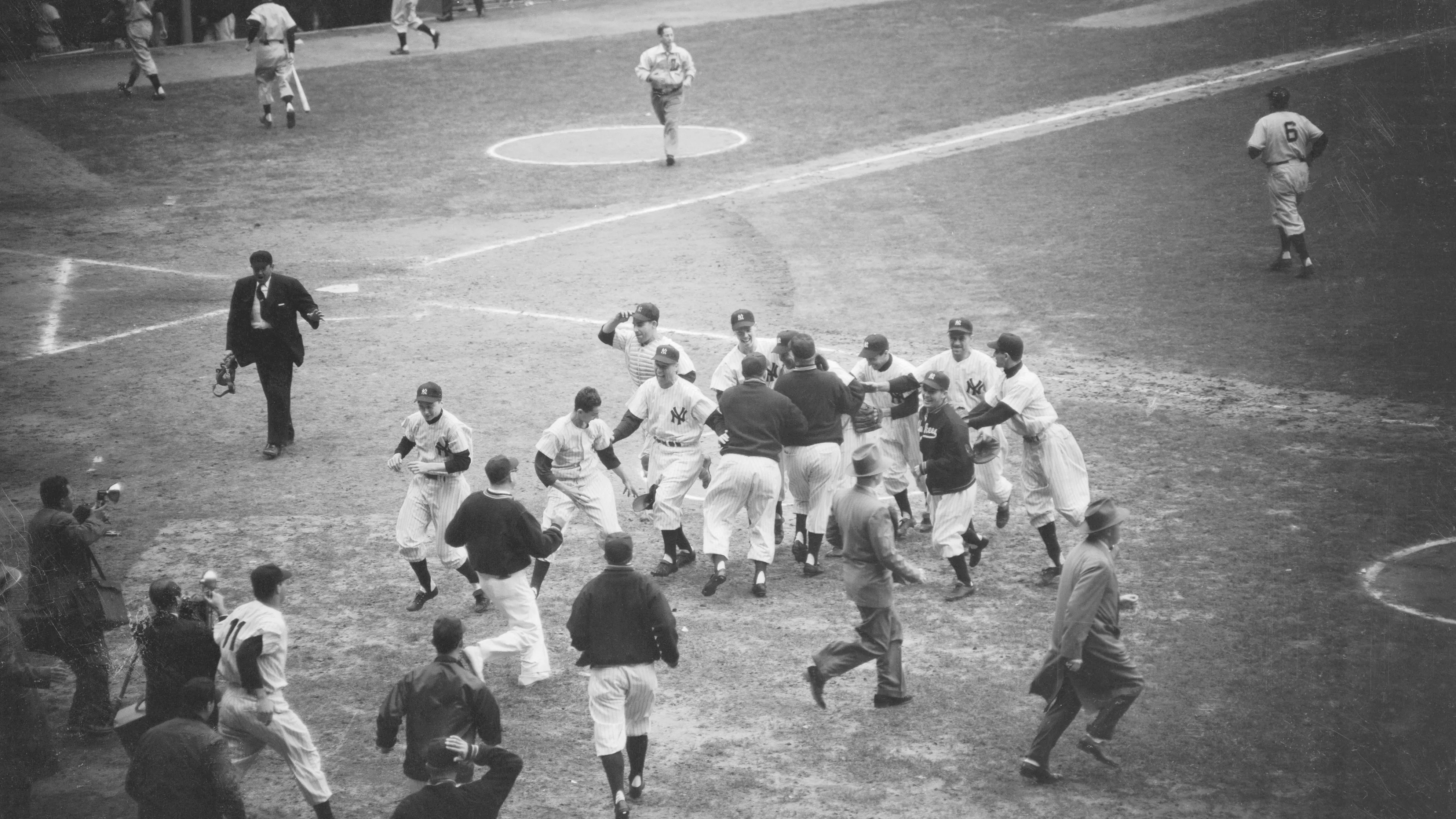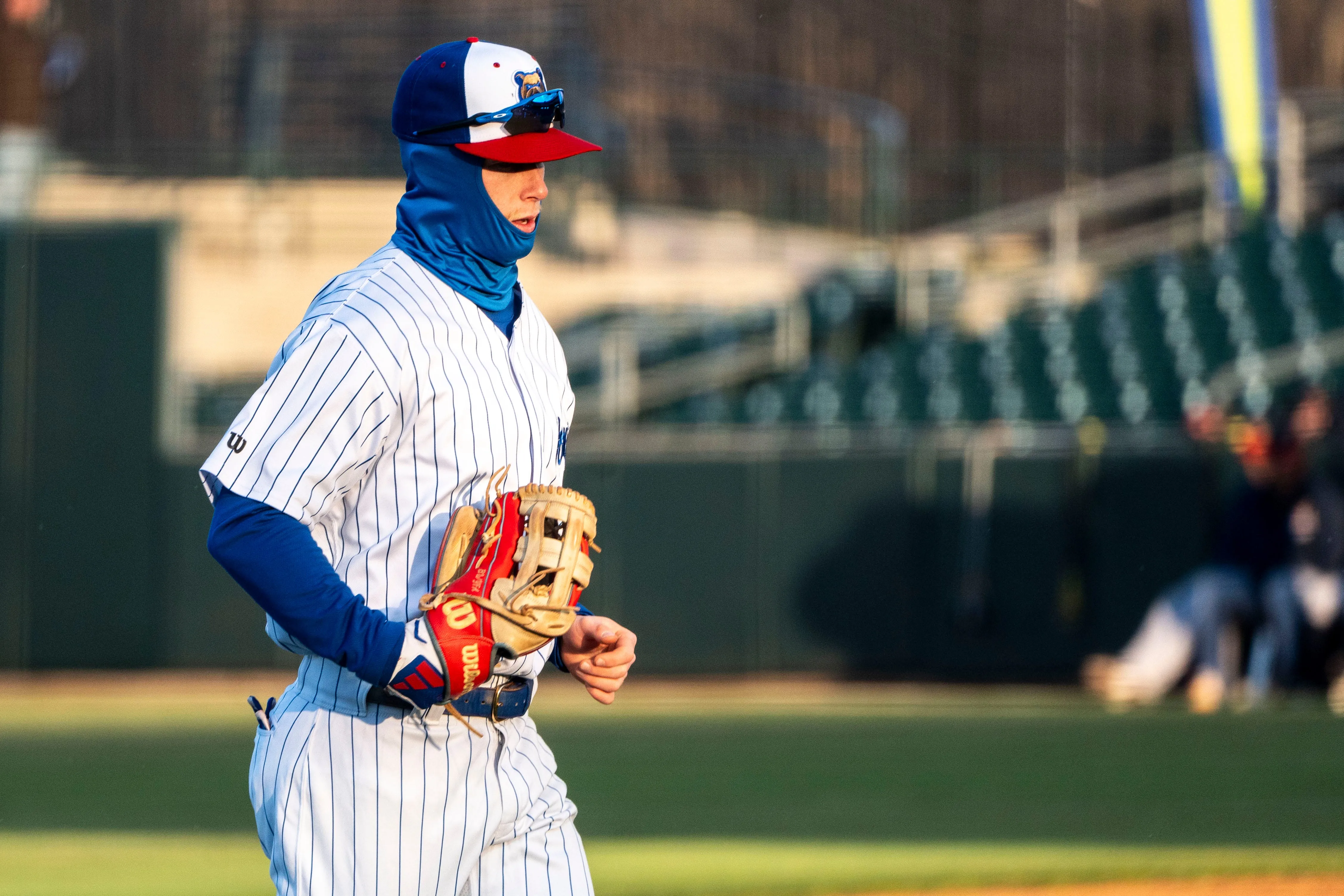It took until the 13th year of Ben Zobrist's major-league career to get thrown out of a game.
His postgame comments Tuesday revealed that the magic words for getting tossed were to tell home plate umpire Phil Cuzzi that his called third strike in the sixth inning was a part of the reason why baseball needs an electronic strike zone.
Joe Maddon was eventually relieved of his duties for the day as well and it marked another tally in the back-and-forth between the Cubs and umpires this season. And, naturally, Zobrist's comments added to the ongoing debate over whether or not MLB should use a strike zone called by computers instead of people.
"That’s a sensitive subject," Ian Happ said prior to Wednesday's game. "I think the umpires have a tough job, and they’re part of the game — they always have been. So I would love for there to be more understanding where if the players are very sure that the guy is missing calls, that he goes back and looks at it."
Happ went on to say his hope would be that umpires were more willing to be open about when they've missed a call, even in hindsight. This does happen on occasion, like when Angel Hernandez admitted that the game-ending called third strike against Anthony Rizzo on Aug. 5 was wrong.
That's all Zobrist is asking for, too.
"When you have good quality at-bats as a hitter and you feel like it's kinda taken away from you, you want some sort of an answer," Zobrist said. "Or you want to be assured that they're gonna go back and make an adjustment and that's what I asked for. It was met with, basically, he didn't want to talk about that. He didn't want me to tell him that."
MLB
What players ultimately crave, Happ said, is consistency. When calls fluctuate, it makes the process for hitters especially difficult.
"You can’t expand just because of what an umpire is calling. If it’s that day, and you know there’s one call that he’s missing over and over, you get in a situation where you have to put the ball in play, and then it’s possible," Happ said. "But I think that it’s so dangerous to adjust your zone day-to-day because you lose all feel, all concept of what the actual strike zone is."
The frustration for the Cubs has boiled over a lot recently.
On July 21, Javy Baez was ejected in the fifth inning of the second game of a doubleheader for throwing his bat and helmet to the ground in frustration. This meant that Zobrist, who was supposed to be getting rest that night after playing in the day game, had to come in and finish the game. Maddon was also ejected that day, and afterward both he and Baez expressed their frustration.
Baez said "we're not animals" while sharing his thoughts on the situation, and Maddon made clear that a player like Baez should not, in his opinion, be thrown out of a game for that kind of action. In both cases, the remarks spoke to the need for players to be allowed to be human on the field and express their emotions, even when they're frustration.
When a call is made like the one Tuesday against Zobrist, it changes the tempo for the rest of the hitters in the lineup. It makes their job harder, too.
"That’s one of the most frustrating things in the game because you are so confident in your strike zone, and you work your whole life to build that strike zone," Happ said of Tuesday's strike three call against Zobrist. "It’s really frustrating when you put together a good at bat, you’re grinding, you think you’ve beat the pitcher, and something happens like that to kind of flip the script, especially in that situation."
Hitting is always difficult, and Happ said it makes batters especially aggravated when they feel like they have to contend with an additional variable like spotty balls and strikes calls from behind the plate.
"We’re the ones who our numbers are dictated by what somebody else does. Hitting is a completely defensive and reactionary thing. The pitcher has control, and we’re adjusting to him. The umpire has control, and we’re adjusting to him," Happ said. "It’s all reacting, so for us to not only be reacting to the guy we’re competing against but also somebody else, that makes it really difficult."
Zobrist is the kind of hitter who should garner respect from umpires around the league, not only because he has never been thrown out and rarely protests a call, but because he is a veteran with the track record to know where a strike call should be. Maddon said Wednesday when he went out to speak to Cuzzi following Zobrist's initial argument, it wasn't in anger. He was mostly surprised that Cuzzi would be in a situation where he had to argue with someone like Zobrist.
"My biggest point was, 'you realize Ben Zobrist is arguing with you right now?' That’s got to be a bad feeling," Maddon said. "I tried to get that across to him, and he could not focus on that thought, he could just focus arguing balls and strikes, which I wasn’t."
These kinds of moments are bound to happen somewhat often given the sheer volume of games played across the league and when they affect players like Zobrist and Rizzo, they can seem especially egregious.
Happ pointed out players are called upon almost daily to answer for their performance, and it is difficult when that is impacted by an added element outside of their control. That's a point Rizzo made, too, in response to Hernandez' call 10 days ago:
"Things like that can't happen and it happened all game," Rizzo said then. "And nothing happens. And I have to answer questions to you guys — why can't you hit? Why are you striking out? Why can't you hit in the clutch in the ninth inning? All these questions. Right there was literally Ball 4."
Happ said he believes umpires need to focus on improvement to reflect the work their player counterparts are doing.
"I think the accountability, and that we’re always trying to get better day-to-day, so I think everybody needs to be trying to get better," Happ said. "Everybody needs to be trying to perfect their craft and there needs to be some kind of measure for how good or bad guys are being."
Maddon said that, despite the frustration of some of the calls this season and yesterday's in particular, he believes that umpiring is actually better than it was 20 or so years ago.
"Scrutiny was different [back then]. The level of accountability was different. The guys at that time truly did have some juice. And I think it’s a different world right now. It’s better," Maddon said. "I think ours is the best officiated game there is regarding just the pure ability of the umpires combined with the way replay works. There’s no doubt in my mind, we do the best job regarding officiating.
"You’re still going to have your moments like [Tuesday], and that’s going to happen, but I think our level of accountability and the method in place is a good one."


